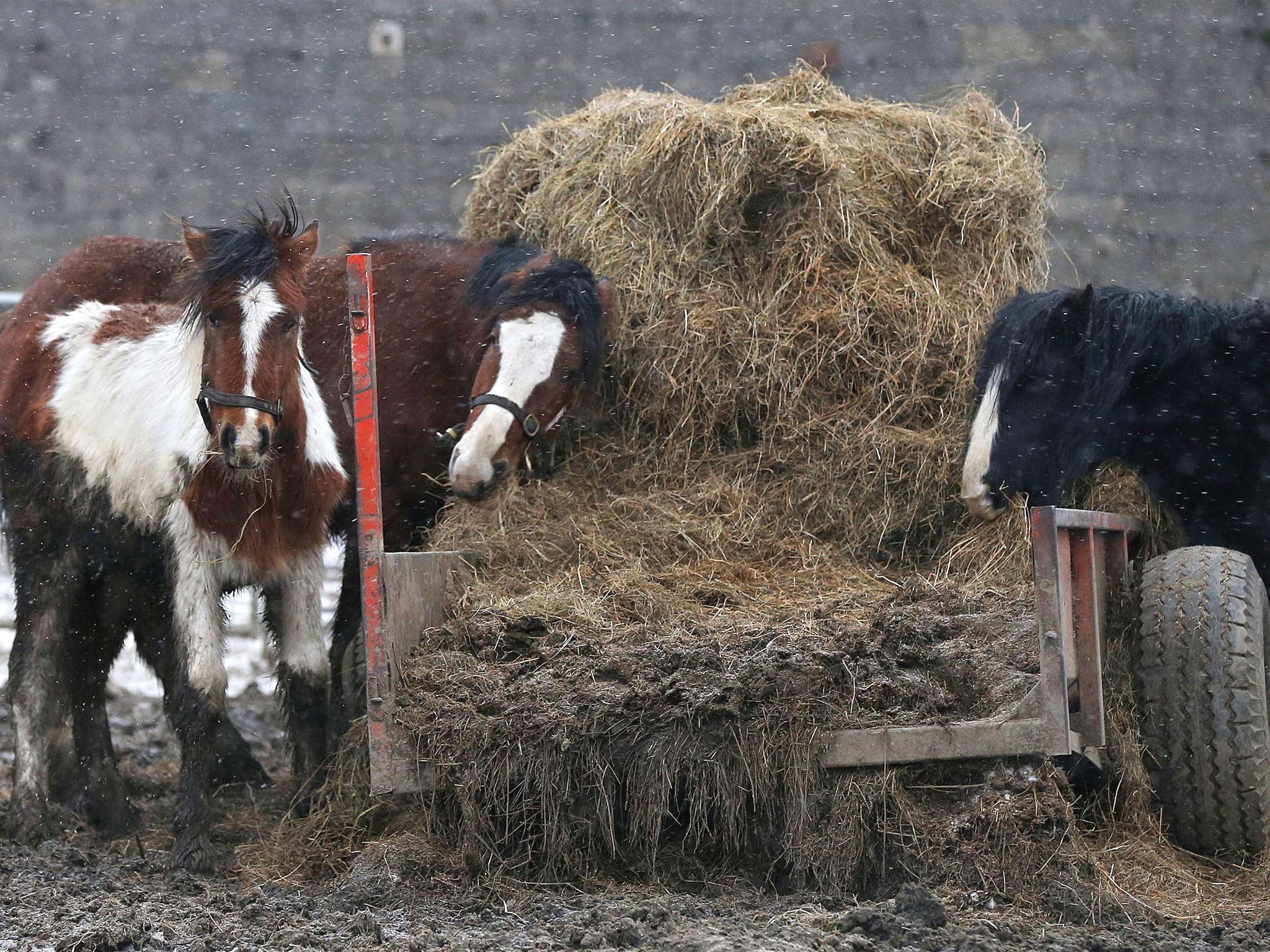Bute painkiller in food chain 'for some time' - but you'd have to eat 500 horsemeat burgers a day to be affected

Your support helps us to tell the story
From reproductive rights to climate change to Big Tech, The Independent is on the ground when the story is developing. Whether it's investigating the financials of Elon Musk's pro-Trump PAC or producing our latest documentary, 'The A Word', which shines a light on the American women fighting for reproductive rights, we know how important it is to parse out the facts from the messaging.
At such a critical moment in US history, we need reporters on the ground. Your donation allows us to keep sending journalists to speak to both sides of the story.
The Independent is trusted by Americans across the entire political spectrum. And unlike many other quality news outlets, we choose not to lock Americans out of our reporting and analysis with paywalls. We believe quality journalism should be available to everyone, paid for by those who can afford it.
Your support makes all the difference.The horse painkiller bute, which is potentially harmful to humans, may have been entering the human food chain for some time through horsemeat produced in Britain, according to the head of the Food Standards Agency.
The alarm went out today for six British horse carcasses known to be contaminated with bute which are thought to have been sent to France for consumption – but the FSA chief execute, Catherine Brown, said that as much as six per cent of horses slaughtered recently may have contained the chemical.
However, tests on Findus processed beef products withdrawn from sale after they were found to contain horse meat had found no bute traces, MPs were told by agriculture minister David Heath.
The Government was at pains yesterday to play down the horsemeat risks of bute, or phenylbutazone, which is occasionally used on humans affected with severe forms of arthritis such as ankylosing spondylitis, and in rare cases, can have serious side effects.
The Chief Medical Officer, Dame Sally Davies, said the levels found in horses were such that someone would have to eat more than 500 horsemeat burgers in a day to receive a human dose.
But it was emerging as more of a concern that the drug had actually got out into the food chain. Ms Brown said that the “horse passports” of horses sent for slaughter, which had to be signed by the animal’s owner and a vet, were intended to certify that the animals were bute-free.
Yet it was detected in eight horses out of 206 tested by the Food Standards Agency in the first week of this month. Two were intercepted and destroyed before leaving the slaughterhouse but the other six were sent to France, where horse meat is commonly eaten.
Ms Brown told a press briefing in London that the FSA had tested five per cent of carcasses, of which six per cent had tested positive. “That would say there has been a significant amount of carcasses with bute going into the food chain for some time,“ she said.
Asked whether it would be fair to assume that six per cent of the 9,000 horse carcasses she said were exported from Britain every year - which amounts to 540 animals – contained bute, she replied: ”That seems as reasonable a basis for making an estimate as any other.“
The FSA had now adopted a “positive release” system whereby carcasses were only allowed into the food chain if they had tested bute-free. In the past this could not be done, Ms Brown said, because the tests took too long.
The Shadow Environment Secretary Mary Creagh accused the Government of ”catastrophic complacency“ over the danger of bute entering he good chain.
She reminded Mr Heath in the House of Commons that she had raised the issue with him three weeks ago and asked why he had not acted earlier.
Join our commenting forum
Join thought-provoking conversations, follow other Independent readers and see their replies
Comments